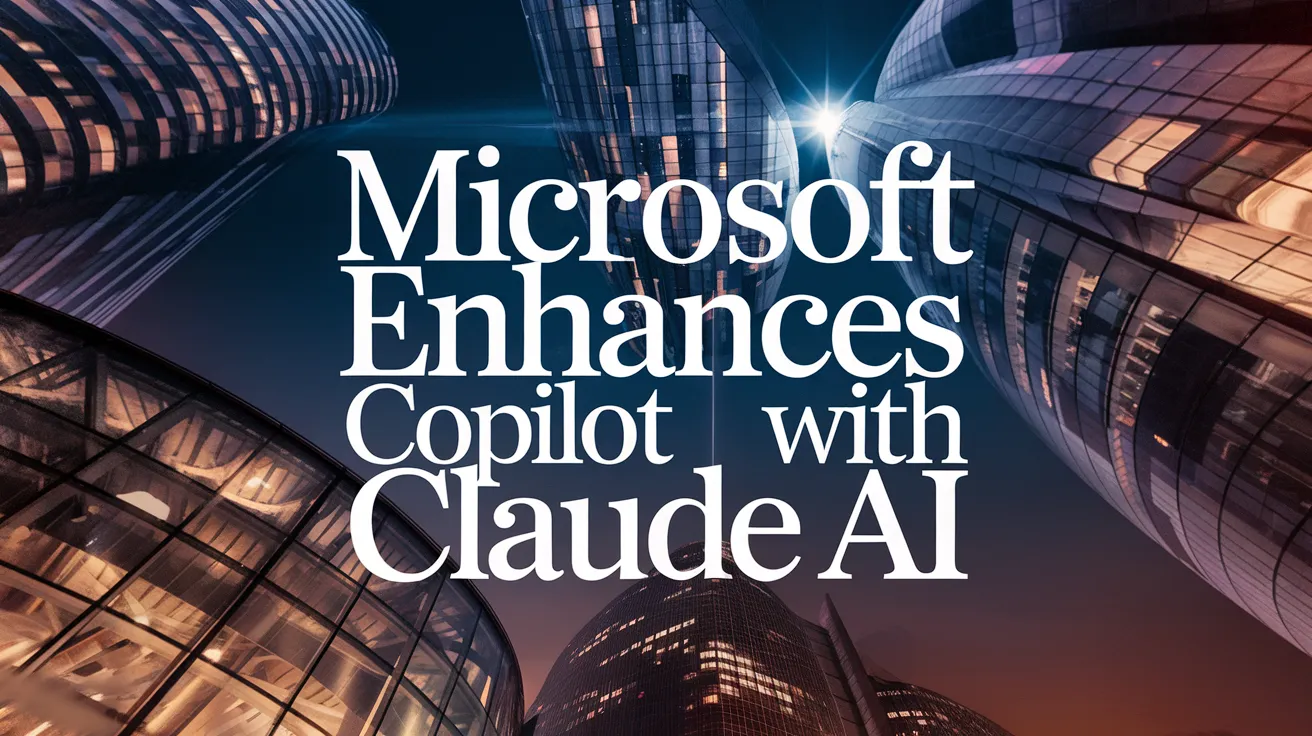Microsoft Enhances Copilot with Claude AI

Microsoft has expanded its Microsoft 365 Copilot suite by integrating Anthropic’s Claude Sonnet 4 and Claude Opus 4.1, enhancing its AI foundation models alongside OpenAI’s GPT family. This integration allows users the flexibility to switch between models within the Researcher agent or while building agents in Microsoft Copilot Studio, a significant leap in catering to diverse enterprise needs.
Charles Lamanna, president of Business & Industry Copilot, mentioned in a company blog post that the Copilot will continue to leverage OpenAI’s latest models, yet now offers the added option of Anthropic’s models. This feature is being rolled out through the Frontier Program, granting Microsoft 365 Copilot-licensed customers the opportunity to experiment with Claude.
Researcher and Copilot Studio Gain Anthropic Support
Researcher has been described as a pioneering reasoning agent capable of helping users develop thorough go-to-market strategies, analyze product trends, and create detailed quarterly reports. With the integration of either OpenAI’s or Anthropic’s models, it is poised to tackle complex, multistep research while effectively navigating vast sources of information, from web data to an organization’s internal communication.
Moreover, Microsoft’s Copilot Studio now allows enterprises to develop customized agents powered by Claude, enhancing workflow automation and flexibility. This dual-support system is significant; users can now implement both Anthropic and OpenAI models for specific tasks, underscoring Microsoft’s commitment to providing tailored AI solutions.
Decision Factors: Model Performance and Workload Suitability
Importantly, Microsoft positions Claude not as a replacement, but as a complementary option to GPT models. As highlighted by Sanchit Vir Gogia, CEO of Greyhound Research, both models have their distinct advantages and drawbacks. Claude is regarded for producing more refined outputs while being slower and potentially costlier, whereas GPT models excel in speed and fluency but often with less diligence in data sourcing. Enterprises are thus encouraged to critically assess which model fits their specific workload requirements.
Redundancy as Resilience
The incorporation of Anthropic’s models signals a transition from a singular model dependence to a more resilient, multi-model strategy. Past incidents, such as outages affecting ChatGPT, emphasized the risks of relying solely on one AI model. Business leaders are now recognizing that diversifying AI solutions, such as implementing Claude alongside OpenAI’s offerings, not only mitigates risks but also enhances operational resilience.
Addressing Cross-Cloud Complications
Despite the advantages, the integration of Claude—operating on AWS—poses unique governance challenges. Unlike OpenAI’s GPT models which run on Azure, Claude’s presence in AWS introduces potential latency issues and cross-cloud data handling risks. Microsoft has cautioned that using Anthropic models involves navigating various governance regulations and could incur additional costs due to data egress. Gogia emphasized the necessity for enterprises to meticulously manage model usage and compliance, setting up strong monitoring and routing frameworks to mitigate risks associated with multi-cloud operations.
In light of these developments, organizations must anticipate increased demands on their compliance teams, who will likely scrutinize cross-cloud traffic and its implications on data security and sovereignty. Implementing proactive measures such as optimizing traffic routing and maintaining data compliance will be crucial as enterprises increasingly adopt diverse AI models for their operational needs.